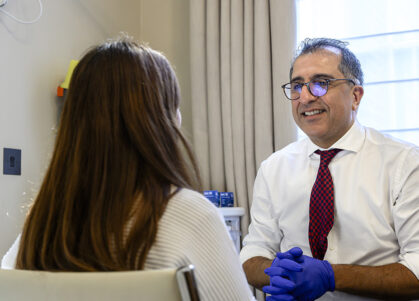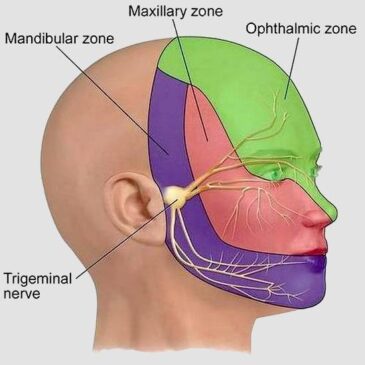Professional Diagnosis
TND is a very individual condition, where discussing your symptoms with an experienced maxillofacial consultant will make a difference.
They help to rule out issues such as jaw joint conditions, or wider nerve injuries and investigate each case. Causes will often be identified by a combination of experience, discussion with you and scientific testing.
Reflex tests may help to establish whether symptoms are caused by a compressed trigeminal nerve. An MRI scan of your facial region can pick up locations where the nerve is compressed.
This is most often caused by pressure from nearby blood vessels, or more rarely unknown tumours, or trauma. Injury to the myelin sheath which surrounds the trigeminal nerve is a possibility.
Multiple sclerosis can bring this type of damage, brain lesions and strokes are at times associated with trigeminal neuralgia. The cause is however more often independent and will respond to available solutions.
A Range Of Treatment
Alongside diagnostic tests, your consultant will have discussed your health and medical history. Trigeminal nerve disorder and treatment are quite individual.
There are cases which will respond to oral, or injected medication. Anticonvulsants can be effective in reducing electrical impulses from the nerve, which send pain messages to the brain.
Antispasmodic agents could assist through muscle relaxation, or be combined with anticonvulsant medication. Dosage control and monitoring for side effects should be part of treatment.
A range of surgical procedures are used to treat TND. They can be approaches which deliberately damage the nerve to reduce the pain this creates, although numbness, or pins and needles in the area could ensue.
Microvascular decompression surgery can be a successful treatment, which relieves compression of the trigeminal nerve by an artery or vein. This is still a significant surgical procedure, requiring discussion and thought.
Individual Support
The spasm like pain TND can bring is often hard to bear and may become more frequent, or intense over time. All the team at our London clinic appreciate the seriousness of the condition and how much impact this has on life.
A well known celebrity went public on her struggles with trigeminal neuralgia. Professor Shakib was asked by the media to provide expert opinion on TN.
We recognise that diagnosis, or solutions are not always straightforward. Even if no compression is visible, you could still have trigeminal nerve disorder. Treatment that works well in one case may not do so in another.
Analysis of your condition will help the specialist supporting you and bring informed treatment. There is often no need to be harried by a life of facial pain, when good care is available.


